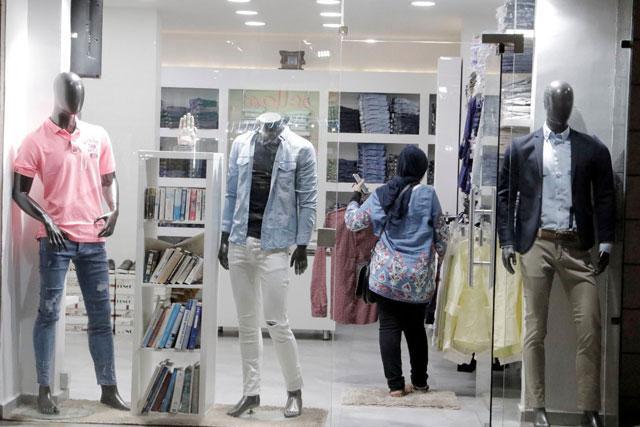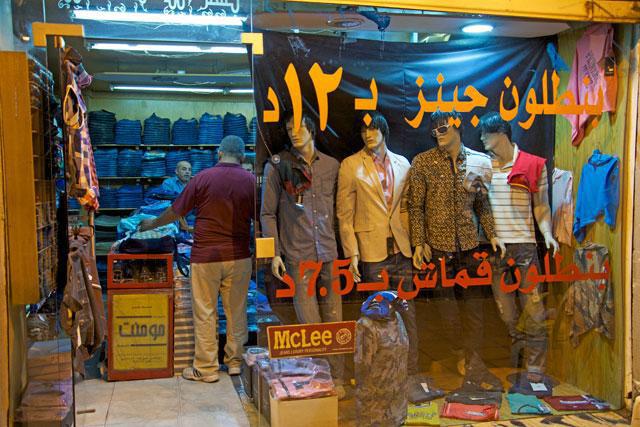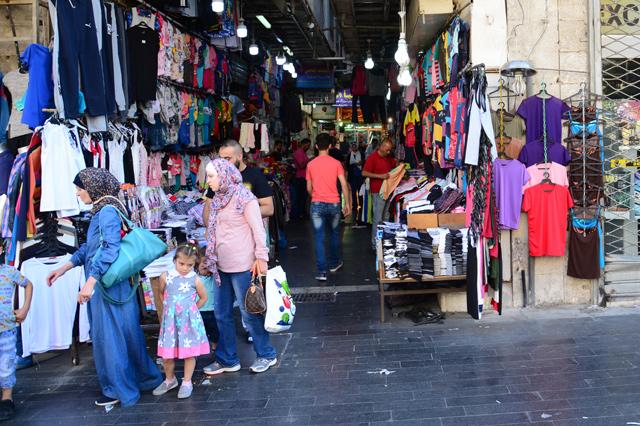You are here
Garment sales hit ‘several-year low’
By Maram Kayed - Dec 26,2018 - Last updated at Dec 26,2018

The Textile and Readymade Clothes Syndicate says that the sector suffered a 60 per cent drop in total revenue in 2018 compared with 2017 (JT file photo)
AMMAN — The Textile and Readymade Clothes Syndicate said that the sector suffered a 60 per cent drop in total revenue this year, compared with 2017. “The situation is the worst it has been in years,” said syndicate president, Muneer Deyeh.
He told The Jordan Times on Wednesday that July and September were “the hardest hit”, as sales fell by 80 per cent, compared with the same months last year. The sector employs around 52,000 Jordanians, many of whom “might be out of a job by the first quarter of 2019”, Deyeh said.
Although the two eids, Black Friday and Christmas livened sales up compared with the rest of the year, the syndicate’s studies show that Eid Al Adha’s returns were 50 per cent less than they were last year, and Eid Al Fitr’s was 35 per cent less.
“Eids and other religious or seasonal holidays are what we call ‘seasonal sales’, so the profits made during them are not an indication of the true state of business,” said Rakan Debes, a shop owner in Istiklal Mall. “But, even those [seasonal sales] were not very profitable this year,” he added.
By the end of June of this year, (the month of Eid Al Fitr), almost 10 per cent of shops had already shut down.
Asaad Qawasmeh, the syndicate’s representative in the Amman Chamber of Industry told The Jordan Times that he expects “at least 30 per cent of shops” to close in 2019, although the actual number “cannot be forecast until the end of the first quarter next year”.
Deyeh said 2019 “must bring with it a solution to revive the sector” saying that “if the government continues to refuse to meet with us, as they did in 2018, there will soon be no sector to even worry about”.
The main problems identified by stakeholders and the syndicate were the increase of taxes and customs, as well as growing operating expenses such as rent, salaries and service bills.
Although the same issues have been haunting the sector for the past three years, Qawasmeh said “this year is when the gradual yet repetitive increases have caught up with profits”.
Mowafaq Dohni, an owner of several outlets in Amman, who has been in the business for 20 years, told The Jordan Times he had “slashed his imports in half” and is “seriously thinking about quitting the business” after enduring what he called “destructive losses” this year.
Related Articles
AMMAN — The garments, accessories and shoes sector is “relying” on eid and the remaining days of Ramadan to boost their otherwise deteriorat
AMMAN — President of the Textile and Readymade Clothes Syndicate Mounir Deyeh said that the sector’s activities have been “less than average
AMMAN — The demand for clothing in the last few days before Eid Al Adha has increased, especially at night between 8pm and 12 midnight, acco

















